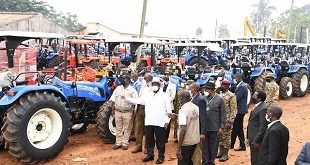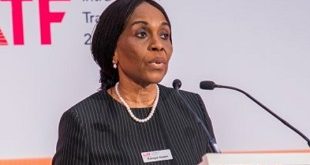
By Independent Team
Buganda, security, opposition leaders speak out
Basing on current statistics, a first round win for President Yoweri Museveni in the 2011 presidential elections appears unlikely. His margin of victory against the opposition has shrunk from 52 percentage points in 1996 when he got 76 percent of the vote to 11 percentage points in 2006 when he got 59 percent and the opposition got 41 percent.

Leaders of the opposition party say, however, that Museveni has consistently won by fraudulent means. Some of them are warning that unless, the 2011 elections are free and fair, they will fight the Museveni government.
But Museveni has warned that he will crush anyone plotting rebellion. So should those threatening rebellion over the 2011 election be taken seriously?
One of them is Makindye West MP, Hussein Kyanjo.
Until December 2009, he was an unknown. Even in Buganda, Kyanjo, was known as the soft spoken, graphics designer and businessman-turned MP from the Justice Forum (JEEMA) party. He was firm on issues of equality, Islam, the rule of law, democracy, good governance, and the Kabakaship.
Then his utterances at the second Buganda Conference on December 18, 2009 swung him to the forefront of national politics.
Without mincing words, Kyanjo told the over 1000 participants: ‘(President) Museveni always said if a jigger is in the foot, the best solution is to remove it,’ Kyanjo told the participants, ‘Some people in my constituency keep suggesting that if the government has failed to adhere to democratic rule, we should fight them and overthrow them.
‘When you oppress people, you tempt them to resort to violence. We do not want to become like Somalia, where violence is the order of the day. I want to be frank that if we fail to get power through democracy, we shall use force.’
Kyanjo’s statements were met with roars of approval from the participants. He had apparently thrown a stone in a bee-hive. Emotions shot up at the conference venue, Hotel Africana. Speaker after speaker launched into a demand for federal system of governance, the respect for the rule of law and respect for the wishes of the masses.
A week later, on December 28, 2009, Kyanjo was summoned to police. Accompanied by JEEMA president, Kibirige Mayanja, Mohamed Kateregga, Kawempe North MP Latif Ssebagala and journalist Kalundi Sserumaga, Kyanjo was questioned for over eight hours at Jinja Road Police Station before being released on police bond.
Outside the police station, Kyanjo stuck to his guns: ‘Whether summons or imprisonment, nothing will silence me because I am speaking the truth. If they fail to honour the rules of the democratic path, we shall fight them and the Constitution allows it.’
Kyanjo is not the first to warn of war if the 2011 elections are mishandled.
On April 27, 2009, the Chairman of the Progressive People’s Party (PPP), Jaberi Bidandi Ssali, who is former Museveni campaign strategist and confidante, wrote an open letter to Museveni warning of rebellion.
The question now is whether the threats from Kyanjo, Bidandi and others are to be taken seriously or are mere political grandstanding.
‘Forget Kyanjo and his politicking,’ the UPDF spokesman Lt. Col. Felix Kulayigye told The Independent, ‘he is just looking for 2011 votes. He thinks he is being relevant.
‘We in the UPDF have ignored him; that is why police is handling his matter. Is he a Buganda spokesperson? Why take him seriously as though he was speaking for the Buganda kingdom? He was speaking for himself.’
Kulayigye added that the UPDF is confident that Uganda is under no threat of insecurity. ‘The business of rebellion and war in Uganda is no longer profitable. Even if the climate was conducive, the soils are barren. If you plant your seeds of war, they will just die of no water or nutrition.’
Museveni reacts
Despite Kulayigye’s confidence in the invincibility of the government, the threats of rebellion and war, if the 2011 presidential and parliamentary elections are not free and fair, is real to the extent that even President Museveni appeared to address it in his New Year message to the nation on December 31, 2009.
Speaking on the issue of security, the president said his government had defeated Kony rebels in the north, the rustlers in Karamoja, and the ADF in the DR Congo.
‘Uganda is now peaceful. I will not tolerate any other trouble makers! So I expect, I demand; and we shall have strict adherence to the constitution of Uganda. There should be no mistake about this. If you want to do anything, follow the constitution. You don’t follow the constitution; I will take action against you, as the elected President of Uganda.’
Commenting on that part of the speech, one listener wondered why Museveni was sending out such a stern warning. Could he perhaps have information about a plot to cause insecurity?
The Buganda threat

Brig. Kasirye Gwanga, who is President Yoweri Museveni’s adviser on security in Buganda region, says there is no military line against Museveni.
‘I am in security. If anyone is organising rebellion, I will know. I have my resources. Hakuna, my region has no problem. I don’t know about other regions,’ Gwanga told The Independent in an interview.
Despite Brig. Gwanga’s rejection of the claims, word on the street is that the threat of a military option against Museveni’s government actually exists. The claim is that Baganda officers and men in the national army, UPDF, who are unhappy because either they are on katebe, have not been properly deployed or have been bypassed by others from different tribes, are open for recruitment into such a venture.
During a meeting with the Buganda Parliamentary Caucus at State House, Entebbe, at the height of the Buganda riots on September 10, Museveni told them: ‘I also got information that Mengo elements got foreign funds to further their aims of fighting the NRM and undermining the Constitution. We are following these reports very closely and we shall defeat all those elements involved. I encourage my friend, His Highness Kabaka Mutebi, to distance himself from the Judases. The NRM fought many battles; we shall win this one also.’
At the time, Buganda’s prince Kassim Nakibinge, had been to Libya to attend celebration to mark the 40th anniversary of Gadaffi’s presidency. Uganda’s royals from Bunyoro and Toro have been frequent visitors to Libya.
‘Accordingly, traditional leaders will be required to declare certain gifts in order to guard Uganda’s sovereignty from foreign interests that fund them. Failure to do so will attract a penalty,’ he said.
The state-run New Vision newspaper on September 20 reported that President Yoweri Museveni told MPs from Buganda on the night the riots broke out that he had intelligence reports that the Buganda kingdom received funds from Libya to fight him.

Official figures of the army’s strength are classified. However, estimates are that the UPDF is composed of about 50,000 officers and men. Of these, up to about 20% are said to be Baganda. Secondly, thousands of Baganda officers and others from other tribes at the ranks of Major and above are currently on katebe (without ‘proper’ deployment). As The Independent has reported in the past, this has created a sense of career insecurity within the military.
There is also frustration over pay. Some soldiers, even those in the Presidential Guard Brigade (PGB), earn as little as Shs 221,000 or the price of 100 loaves of bread a month.
A study conducted by former UPDF Director of Records, Major Sabiiti Mutengesa and Dylan Hendrickson at King’s College London, found that ‘there are two contradictory impulses in security decision-making’ in Uganda. The first comes from the enormous concentration of power in the presidency, which has resulted in the president or those close to him ‘monopolising key decision-making events of not only a strategic nature, but also operationally, which would normally be the competence of lower echelons of either the state administration or the security establishment. These decisions are often made without reference to a clear policy framework.’
The second impulse comes from the numerous security organs in Uganda, which may or may not be state sanctioned, but that are in any case ‘not subject to the same mechanisms for oversight and control as statutory bodies’. Sabiiti and Hendrickson note that ‘these actors tend to either operate outside any policy framework or, effectively, make policy on the hoof. They tend to be more driven by parochial concerns, rather than the interests of the state of the “public”.
This haphazard manner of organisation also creates a fertile breeding ground for corruption within the security sector, which has also led to undesirable outcomes.
Between April 7, 2008 and March 11, 2009, there were at least 95 fire incidents in schools all over the country, according to police statistics. Of these 52 were in Buganda, mostly in Kampala, Mukono, Mpigi, Wakiso and Jinja districts.
In all cases, the police have not indicted a single suspect with certainity. Last year also witnessed a wave of murders by iron-bar hit men (katayimbwa) who terrorised parts of the country.
| John Ssebana Kizito- DP President:
‘The government needs to revise its approach to the problems affecting this country before the people of Uganda and especially Buganda are pushed to the wall and forced to resort to rebellion.’ Daudi Migereko-The NRM Chief Whip ‘Our objective is to address unemployment and household incomes; issues of self defence are a by-the-way.’ Ofwono Opondo-NRM deputy spokesperson: ‘Security in this country is comprehensive. We in the NRM cannot afford war or any form of rebellion. Any form will be squashed.’ Charles Peter Mayiga-Buganda Information minister: ‘I do not know what is in Kyanjo’s mind; I am not God. But I believe he meant to say that the problems in Buganda have escalated and if not addressed effectively, they may explode violently. ‘ Ambassador Vincent De Visscher: ‘It’s important to cool down …The election is still 14 months away. I am going to seek a meeting with my fellow ambassadors to see how we can appeal for calm.’ Norbert Mao: ‘Federalism will deal with corruption, restore the prestige of government institutions and bring redress for imbalances in economic prosperity.’ Hussein Kyanjo ‘I am speaking the truth. If they fail to honour the rules of the democratic path, we shall fight them and the Constitution allows it,’ the Makindye West MP told journalists outside the Jinja Road Police Station. Kulayigye: ‘Forget Kyanjo and his politicking,’ the UPDF spokesman Lt. Col. Felix Kulayigye told The Independent, ‘he is just looking for 2011 votes. He thinks he is being relevant.’ Salaam Musumba-FDC: ‘It is sad that the international community has always avoided Uganda’s early warning signs of trouble.’ |
The attacks were allegedly eerily similar to the 1980s wave of groups who threw grenades, waylaid people, hit them with iron bars, planted landmines, etc. Initially, the then president Obote’s government dismissed them as acts of bandits and thugs bent on disrupting public life. Later, however, it conceded that these were acts of sabotage by rebel groups operating in Luwero, Mukono and other areas surrounding the city.
They were orchestrated by then rebel outfits like Museveni’s National Resistance Army (NRA), Uganda Freedom Movement (UFM) and the Federal Democratic Movement of Uganda (FEDEMU). Their plot was to make the government appear powerless, vulnerable, and unable to provide security.
A person familiar with intelligence operations at a very senior level told The Independent in earlier interviews: ‘If you study the pattern of the fires ‘ the low moments and the upsurge, and how the iron-bar hit men were operating, it shows it is an organised group. It shows there is somebody regulating it that he kind of lets the dogs out and pulls them back when it gets too much.’
According to experts in insurgence, spreading fear through terror stifles investment in the economy, nurtures poverty and frustration and a desire for a change in government. Museveni and other rebel groups of the 1980s apparently used the strategy to weaken the Obote government.
Recently, most people in northern Uganda, West Nile, and Kasese, which have been terrorised by rebellion voted against Museveni in 2006. They wanted change.
Brig. Kasirye dismisses claims that Baganda officers and men can organise militarily against Museveni.
‘Who can organise them? I know how you can organize a rebellion and I can tell you that they cannot. They are disorganized.’
He, said, however, that people who have been involved in the murders, September riots and looting were poverty-stricken people and not anti-government.
‘It is about eating. People are angry at what the leaders are doing with their money, the billions,’ he said, ‘If there is hunger, there will be rebellion.’
Kasirye’s view is that to avert rebellion, the government needs to ensure economic prosperity of the citizens.
The poverty factor
The relationship between economic well-being, democracy, and rebellion has been documented by scholars like Prof. Paul Collier. In his book, “Democracy, Development, and Conflict’, Collier argues that democracy also constrains the technical possibilities of government repression, and that this makes rebellion easier. He says that whereas in rich countries democracy makes countries safer, below an income threshold, democracy increases proneness to political violence.
If Collier’s analysis is correct, then it is unlikely that there will be rebellion in Buganda. According to a report released in September 2009 by Fanaka Kwa Woke, an independent research organisation and think tank, the Baganda are the richest tribe in Uganda.
Alternatively, if poverty is the factor driving people into rebellion, then president Museveni’s government merely needs to become more repressive to contain it.
President Museveni’s government appears to be aware of the political danger lurking in a failing economy amidst attempts at democratisation.
When asked by journalists if the government was training a militia to quell any impending rebellion, the NRM Chief Whip Daudi Migereko, reportedly replied: ‘Our objective is to address unemployment and household incomes. Issues of self defence are a by-the-way.’
As one analyst put it after President Museveni warnings in the New Year speech, there is really no threat of rebellion, but even mere talk of rebellion scares away investors.
‘If you want to touch a raw nerve with Museveni, just attempt to scare away investors,’ he said. When the Sunday Monitor newspaper ran a front page story titled, “Fear of war as polls draw closer’, the reporter was summoned to the same police station not because Museveni thinks a rebellion is possible but because he believes such headlines scare away investors.
But others warn that forces opposing Museveni recognize that.
That is why they are not fighting Museveni to win a war against him but rather to weaken him to the point where he accepts a power-sharing arrangement similar to the ones in Zimbabwe and Kenya. As a result, they are promoting an anti-Museveni philosophy and not a war.
An official close to the discussions between Kabaka Mutebi and Museveni says it is highly unlikely that Buganda kingdom will back a war against Museveni. The official appeared to confirm the word on the street that, in pursuit of political advantage, Museveni has in fact agreed to compensate Mutebi for losses suffered as a result of the closure of the kingdom radio CBS FM.
According to this camp, the demand for federal does not amount to a desire for federo. It is a rallying call.
‘Anyone, anywhere, can use it to mobilise even spontaneous acts of rebellion as we saw in the September riots,’ the source said. Indeed, analysts have noted how the September riots appeared to have no centralized command and yet they were able to paralyse the city.
Experts in guerrilla warfare say the best are organized in cells of between three-five men. This ensures their security because only the few in each cell know each other and it also makes it easy to mingle with the population, e.g. as members of a brick-making gang. However, groups united by a philosophy do not even need cells. As the American forces have recognised in Iraq and Afghanistan, people who do not know each other but are united by a philosophy of hate can spontaneously join in any action against the American and immediately after the operation return to their homes.
‘That is what we saw in the September pro-Kabaka riots and are likely to see in future,’ the source said.
 The Independent Uganda: You get the Truth we Pay the Price
The Independent Uganda: You get the Truth we Pay the Price


